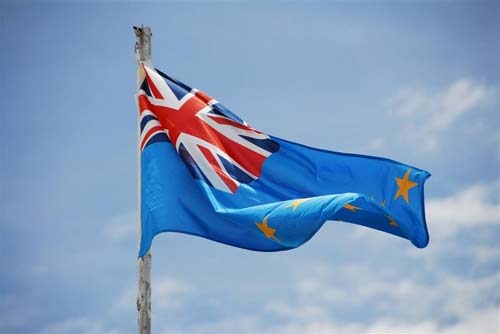By David Gold
October 2 – The tiny pacific nation of Tuvalu is determined to win membership to FIFA next year at its annual congress, despite having never played a home match.
Tuvalu is the world’s smallest country by population; it has just one football pitch and is so narrow that only small planes can land on its runway.
In spite of these obstacles, Tuvalu has the distinction of being the only country in the world to have taken part in a World Cup qualifier, despite not being a FIFA member.
This is because the South Pacific Cup doubles up as the first preliminary stage of qualifying for the World Cup in Oceania, so when Tuvalu drew 1-1 with Tahiti they carved out their own piece of football history.
However, they have never played an official home match in their history.
Tuvalu is an archipelago of 26 square kilometres, consisting of a number of small islands, and has just 12,000 residents.
So tiny is it that on an average world map the country will be represented by barely a single dot.
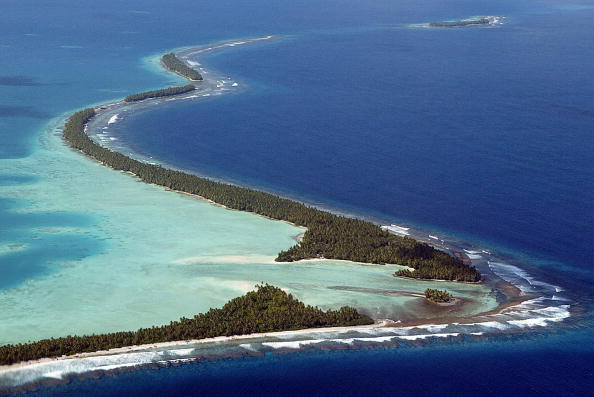
Tuvalu makes most of its money from fishing rights and domain names for television stations, as they are the country with the lucky .tv suffix.
Yet they are keen to become a member of FIFA, and will apply for membership at the 2013 annual congress.
Paul Driessen, Tuvalu Football Association marketing and communications manager, spoke to insideworldfootball from his base in Eindhoven, the Netherlands, where a team of between five and nine people meet every month at what is known as the “Tuvalu meeting”.
Experts from a range of positions, including a journalist, a graphic designer, a statistics professional and a social media specialist, discuss football in Tuvalu and how to help it progress.
“Tuvalu has been dreaming about becoming a FIFA member since 1987,” Driessen told insideworldfootball.
“They’ve want to be a part of FIFA, for all those years – recognition is one part of the story.
“The Football Association has a very small budget to compete in a football tournament every one, two or three years.”
Football is currently played on all of Tuvalu’s islands (pictured below, the national team of Tuvalu), and it is by far the most popular sport, even more so than rugby, which is extremely popular in that part of the world.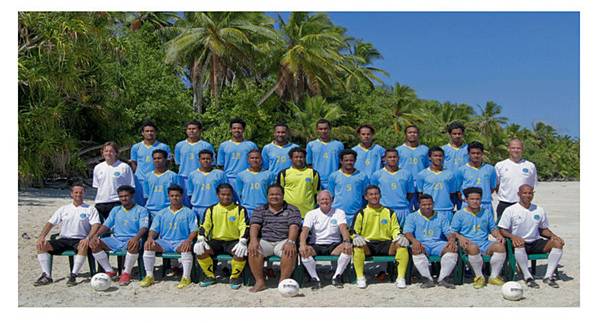 Tennis, basketball, athletics, volleyball and badminton are among the other sports played, but none holds the same significance as football.
Tennis, basketball, athletics, volleyball and badminton are among the other sports played, but none holds the same significance as football.
Tuvalu has a domestic football league, with eight clubs and cup competitions – the Independence Cup and Christmas Cup – to complement it.
And with the other sports all holding their own competitions, Tuvalu even has its own version of the Olympic Games.
However, for its national teams to venture outside of the islands can be expensive, with flights to New Caledonia or New Zealand prohibitive.
The islands are so isolated from most countries around them that the most viable option for playing football games is to travel by boat to nearby Fiji.
“Just playing matches in Oceania is very expensive because you have to travel by plane – that is the only method of transport, it is always the distance and cost with those games,” Driessen said.
“FIFA membership would make an enormous difference – it depends how the association spends the money of course, that is crucial.
“First of all Tuvalu needs an artificial turf field, because the field is not currently in the shape it needs to be to perform proper training.
“So a lot of money goes to facilities.”
Tuvalu would also significantly benefit, in Driessen’s view, from having a football coach brought in from Europe.
He cites the examples of American Samoa, whose Dutch coach Thomas Rongen guided them to their first ever international victory last year.
Tahiti is another country Driessen brings up, who employed French coach Patrick Jacquemet a decade ago and this year won the Oceania Football Confederation (OFC) Nations Cup – the first time anyone other than Australia or New Zealand has claimed the title.
“What would be best for Tuvalu in my experience is to have a football trainer from Europe, a qualified one to guide them for several years because if you want to compete with other countries you need to think in a professional, Western way,” Driessen explained.
“That is where you make the difference.”
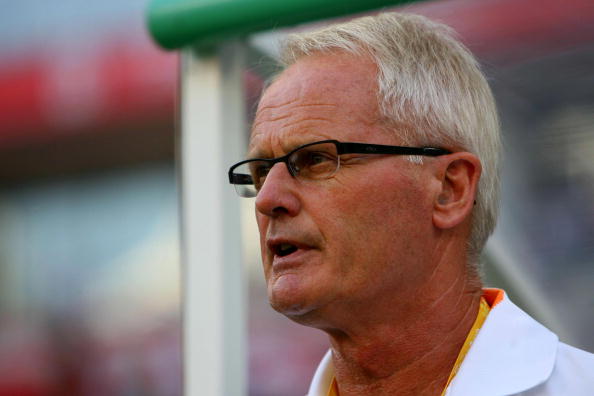
Driessen’s perfect coach for Tuvalu would be well-known Dutchman Foppe de Haan (pictured above), who won the UEFA European Championship in 1988, while another candidate would be Ruud Gullit.
What would also help would be support from the OFC, which Driessen says can be slow.
“We are not really satisfied at the moment, communication is running really slow from their side,” he said.
“You hardly receive replies, you have to ask three or four times before you get an email reply.
“You want to make the next step, but you need to have the support of the Oceania Football Confederation.
“In general it could be better.”
As well as the OFC, FIFA’s requirements are also causing Driessen and his colleagues headaches.
They last met with FIFA in 2008 and have been working hard since to solve the problems they identified for Tuvalu.
“We are preparing everything and writing a document which puts an answer on all their requests and conditions to become a FIFA member,” Driessen said.
“We cannot fulfil all conditions, we have to find solutions.
“For example you need the opportunity for infrastructure to play home matches.
“But that is impossible for Tuvalu because the airstrip is very small so only small teams can land there.
“Tuvalu needs to have a four or five star hotel, that would be ridiculous to extend the runway and to have a four five star hotel where there is no need, only for recognition in football.
“Football players in Oceania do not need a four star hotel.
“They do not live in a four star environment.
“There is not a single national football team in Oceania who needs a four star hotel because they are not professional players – only New Zealand has semi-pros.
“It is a strange condition so we try to solve it by suggesting to play football matches in Fiji.”
It is a proposition that is not without precedent; East Timor have never played a home game, despite being a FIFA member since 2005.
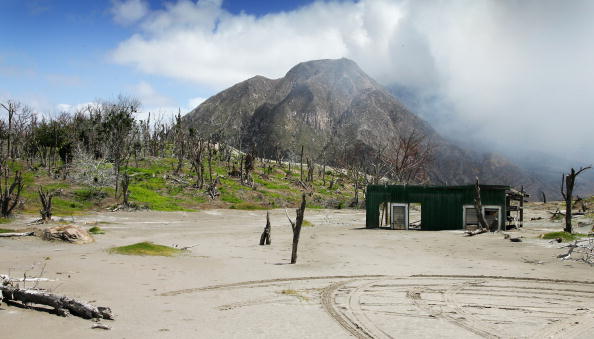
Montserrat (pictured above), who have a problem with a volcano, play matches on another island, while numerous nations such as Iraq and Afghanistan have played games in other countries due to war.
Tuvalu is in the process of organising a training camp in the Netherlands next year and are hoping to play a friendly against a European opponent.
Monaco have been approached, while San Marino could be another ideal opponent.
In spite of all the obstacles facing them, Tuvalu has cause for hope.
Play the Game last year reported that Tuvalu was in the first category of potential member states not already part of FIFA, the most likely to win accession in the years to come.
They rank alongside Kiribati, Monaco and Palau, ahead of the likes of Guadeloupe, the Isle of Man, Jersey, Kosovo and Gibraltar.
It is at least a positive sign that Tuvalu’s 25-year wait for recognition from world football’s governing body may be coming towards an end.
Contact the writer of this story at zib.l1745390960labto1745390960ofdlr1745390960owedi1745390960sni@d1745390960log.d1745390960ivad1745390960

